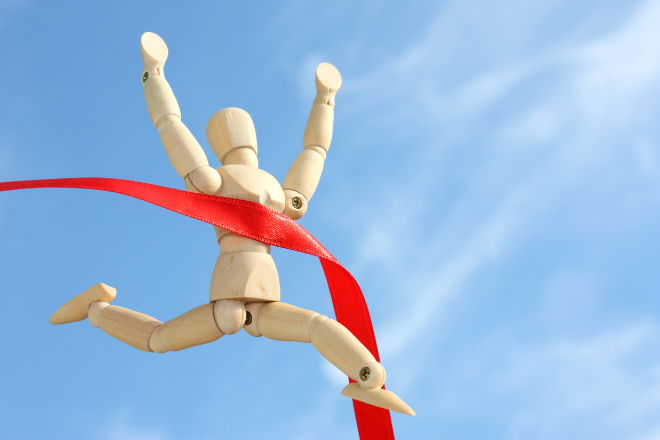Co-producer Isaac shares some thoughts on how we can all work towards ensuring the practice of co-production and collaboration is safe for everybody.
Hi, I'm Isaac
So, I would like to turn the term ‘safeguarding’ on its head, whose safety is it anyway? How do we work in a compassionate trauma informed way? Our collective well-being is very important to ensure we can all co-produce in the way that is not only meaningful and effective but in a way that is compassionate and not re-traumatising.
How do we ensure the practice of co-production and collaboration is safe for everybody? These are questions that the Co-Production Collective has started to explore and rightly so.
You might be asking yourself how we approach this challenge? We approach it as we do all our work, with a series of conversations, that brings everybody’s skills, knowledge and experiences together to really help us to try and get this right. Thinking about, how can we be a community with safe practice at its heart.
How have we started to explore this? So far, we've done this in several ways. We have created an opportunity for members and the core team to be part of some trauma informed training. We've also started to develop an approach at the Collective of how we ensure we're really thinking about safeguarding and are aiming to co-produce our own safeguarding policy. We began discussing this as a community in October 2022 and are aiming to have a policy or document launched by the beginning of May 2023.
My personal experience

The subject of safeguarding became present in my own life recently because I was recently asked to share my story of being abused in a mental health setting in the winter edition of the Royal College of Psychiatrists Insight magazine. This not only took me back to those moments, minutes of abuse, it reopened those wounds that have probably never healed. From sharing my story, I never imagined that I’d be transported back to that time, certainly those feelings, emotions experiences, smells, and sounds flooded back into my life. I was, having flashbacks and still am, I am very conscious of why this approach is so important.
I shared my story because I want things to be different for other people like me, that find themselves in situations where they aren’t safe, and safeguarding isn't thought about or is an afterthought.
I believe a core element of co-production has to be about how we ensure people are (safe). I use safe in brackets because I don’t mean this in a paternalistic way. I mean it in a way that enables people to share their experiences without traumatising or re-traumatising them, can make them stronger and ultimately leads to the change that people and communities want to see around compassionate co-production.
Co-production Collective believe this work is really important for co-producing not only for our community but also how we support co-production more widely. Therefore, thinking and knowledge around safeguarding is key. We need to ensure that we are really considering safeguarding as a core element that runs throughout all our work. We have some great values to live by, but values need to be continually worked at like safeguarding.
Lately there has been a lot in the news and on Panorama about abuse in mental health settings. I believe, as someone who's been abused in a mental health setting it's really important to spotlight this so this is what I shared on a blog I posted on LinkedIn. I know that sharing our experiences can be traumatising or retraumatising, but it's also really important not to hide the truth. People need to be supported to share their stories if they want to, as sharing stories can often make us stronger.
We need to shift away from it being acceptable within care settings for people to experience abuse. Often when you say things like this, the system becomes very defensive. But we've had this for too many years, with people not only being abused but also losing their lives in these settings, because they have been dehumanised. So, the more we talk about it, the more we create space for change.
It's vital that we use individual stories to help people and systems understand that these occurrences chip away at the human relationship when we start to dehumanise people. From lived experiences, we know this is really terrible. Awful things can happen. We know this. We haven't learned from history that when you dehumanise people, you can absolutely do terrible things.
My aim is to share how closed cultures and abusive situations can be improved, when we really think about humanising these experiences. This includes having that shared accountability and ensuring everybody understands that it's everybody's responsibility to notice abuse and to call it out.
Abuse rarely starts with a slap around the face. It starts with the small things, like denying people their rights and allowing people to use derogatory language, which then leads to other situations. In my situation a nurse pushed me and threw a hot drink over me, and nothing ever happened to stop what the nurse was doing or to stop it happening to anyone else. Nothing will change unless we make a difference.
My lived experience has been incorporated within an article for the Royal College of Psychiatrists’ Insight publication (Nov 2022). You can find the full article on page 8.
Any feedback and comments are welcome. Please get in touch if you're interested in discussing this blog by emailing coproduction@ucl.ac.uk
How can you get involved in Co-Production Collective's safeguarding work?
Thank you to all of you who attended our co-creation session with Richard Banks and/or met him to share your views.
Richard is continuing to support us with this work and the next stage is to create a small working group to further develop our policy. We are looking for three people who would like to get involved. This will involve several one-hour meetings and a little reading, and we would like to offer payment of £200 for one day of work. If we receive a lot of expressions of interest, we will draw the successful group members out of a hat.
If you would like to get involved, please email us on coproduction@ucl.ac.uk by end of day Wednesday 8 March at the latest.
From these working group sessions, the policy will be developed further and shared back with our community for final thoughts. It will be ready to be shared and implemented from around the beginning of May.




.png)

.png)
.png)

.png)
.png)
.png)

